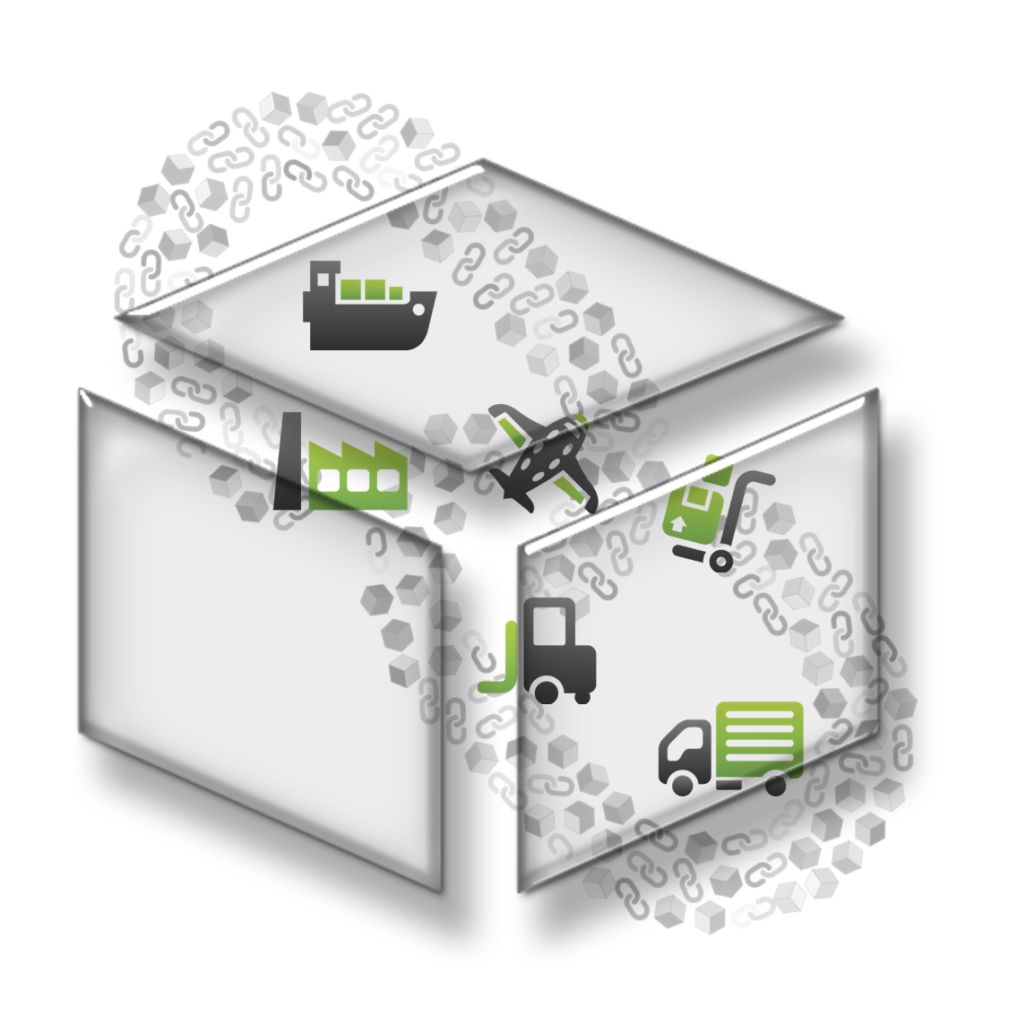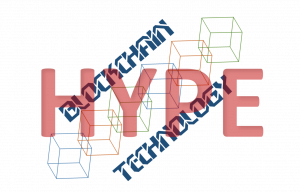There has been a lot written about blockchain technology this past year as people realize its potential goes far beyond use in cryptocurrencies. When it comes to the technology, both the blocks and the chain are important. Shanmugasundaram Murugesan, Associate Director of Happiest Minds Technologies, explains, “Blockchain technology is all about tracking a transaction from the start until the end, and all the nodes in the network register and update themselves with the status of transactions.”[1] Since modern supply chains are really value networks, leveraging technologies that are well-adapted to network usage, like blockchain, makes a lot of sense. Murugesan observes, “Blockchain is a glorified ledger which cannot be hacked to alter any transactions that have happened in the blockchain network. All the nodes in the blockchain know about all the transactions that have happened since the network started. Hence, to compromise a transaction, all the nodes or the majority of the nodes have to be compromised in a reasonable amount of time, which is not practically possible.” Steve Banker (@steve_scm), Vice President for Supply Chain Services at Arc Advisory Group, explains blockchain technology in terms supply chain professionals can understand. He writes, “Supply chain networks, which are centralized Cloud applications that all network transactions flow through, eliminate the ‘he said, she said’ kinds of disputes. Because the transactions flow through the network, network master data can be used to resolve disputes among participants. Blockchain for supply chain management is, in effect, a network application. But instead of being a centralized application, it is built on the distributed databases of supply chain partners in an extended supply chain. It is a decentralized architecture. It has the advantages of existing network solutions and, in theory, will also have better IT security than existing supply chain applications.”[2]
Why blockchain looks so promising
Some people might view blockchain as a complicating factor in future supply chain operations. After all, in order for blockchain to work, everybody in the transaction chain must agree to a standardized protocol. In today’s crazy world, getting people to agree on anything is challenging. Joe McKendrick (@joemckendrick), an information technology expert, explains why blockchain technology can actually simplify things in already complex supply chain environment.[3] McKendrick draws from a report published by Accenture and DHL to make his case. The report states, “The logistics behind global trade is highly complex as it involves many parties often with conflicting interests and priorities as well as the use of different systems to track shipments. … A simple shipment of refrigerated goods from East Africa to Europe can go through nearly 30 people and organizations, with more than 200 different interactions and communications among these parties.” McKendrick adds, “Blockchain technology can help alleviate many of these frictions, ‘including procurement, transportation management, track and trace, customs collaboration, and trade finance’.” Dante Disparte (@ddisparte), founder and CEO of Risk Cooperative, agrees with McKendrick and the Accenture/DHL report. He writes, “Blockchain can create a world of low friction value transfer. Indeed, blockchain’s power to transform the world can only be fully harnessed when we stop talking about blockchain and the hype is replaced by this technology fading to the background.”[4]
The benefits of blockchain in value networks
Disparte believes some of the hype surrounding blockchain technology has gone too far. He writes, “Some of the assertions of how blockchain can be used to fix literally everything border on the absurd.” Nevertheless, he predicts, “A cadre of blockchain billionaires will be minted by fighting friction, opacity, and institutional mistrust wherever they rear their ugly heads.” McKendrick discusses five benefits implementing blockchain technology can produce. They are:
1. Driving greater automation: “Blockchain can greatly reduce bureaucracy and paperwork. … Up to 10 percent of all freight invoices ‘contain inaccurate data which leads to disputes as well as many other process inefficiencies in the logistics industry.’ Instead of attempting to manage a lengthy paper trail, blockchain provides for ‘an automated process storing information in a tamper-evident digital format.’ This automation can be extended to of services that currently require an intermediary such as insurance, legal, brokerage, settlement services, outsourced transportation management, normative compliance, route planning, delivery scheduling, fleet management, freight forwarding, and connectivity with business partners.”
2. Enabling new business models: There has been a lot of discussion about using blockchain for smart contracts. According to the report, blockchain could also be used to for “micropayments, digital identities, certificates, [and] tamper-proof documents.” It adds, “Much more can be introduced and radically improved using blockchain-based services.”
3. Creating greater connectivity across supply networks: McKendrick writes, “The fragmented nature of the logistics industry — and cumbersome manual processes — make many logistics processes ripe for blockchain. The Accenture/DHL report notes, “Today, there is a significant amount of trapped value in logistics, largely stemming from the fragmented and competitive nature of the logistics industry. … With such a huge number of stakeholders involved in the supply chain, this often creates low transparency, unstandardized processes, data silos and diverse levels of technology adoption.” McKendrick points to the fact there are nearly half a million trucking companies in the U.S. alone. “Blockchain,” he writes, “can potentially help to ‘enable data transparency and access among relevant supply chain stakeholders, creating a single source of truth. In addition, the trust that is required between stakeholders to share information is enhanced by the intrinsic security mechanisms of blockchain technology.’ More automated, leaner and more error-free flow of goods can also speed up delivery as well.”
4. Alleviating friction in global trade: The Accenture/DHL report observes, “The logistics behind global trade is highly complex as it involves many parties often with conflicting interests and priorities as well as the use of different systems to track shipments.” Each of those differences can add friction in the supply chain. As noted above, blockchain can help reduce or eliminate that friction.
5. Improving transparency and traceability in supply chains: McKendrick observes data about how goods are made, where they come from, and how they are managed can be stored in a blockchain-based system. The Accenture/DHL report states, “This means that the data becomes permanent and easily shared, giving supply chain players more comprehensive track-and-trace capabilities than ever before. … These initiatives also deliver consumer benefits — people can find out more about the products they are buying, for example, whether a product has been ethically sourced, is an original item, and has been preserved in the correct conditions.”
“The power of blockchain,” concludes Murugesan, “comes from the fact that there is no central authority to maintain the record of transactions; the blockchain is distributed and therefore trust is also distributed and not negotiable.”
Summary
“With the promise of fast and secure end-to-end product traceability,” writes Melanie Nuce (@auntmel) Senior Vice President for corporate development at GS1 US, “blockchain is easily one of the most energizing — and complex — technological developments of the past few years. … Blockchain has tremendous potential, but most predictions put its maturity out three to five years. Now is the time to focus on the most important prerequisite for blockchain—interoperability. The data transmitted on a blockchain needs to be universally accepted and understood by all systems for blockchain to be effective and scale.”[5] Potential is a good quality for an emerging technology; but, blockchain technology needs to move beyond the potential stage if it is going to transform the supply chain as many analysts predict.
Footnotes
[1] Shanmugasundaram Murugesan, “Reimagining blockchain for the supply chain,” IoT Agenda, 12 March 2018.
[2] Steve Banker, “Blockchain: The Building Block Of The Supply Chain Of Tomorrow?” Forbes, 16 March 2018.
[3] Joe McKendrick, “5 Reasons to Blockchain Your Supply Chain,” Forbes, 19 March 2018.
[4] Dante Disparte, “When We Stop Talking About Blockchain, We Can Change The World With It,” Forbes, 28 March 2018.
[5] Melanie Nuce, “Amplifying The Power Of Blockchain—What You Need To Know,” The Shelby Report, 23 March 2018.





